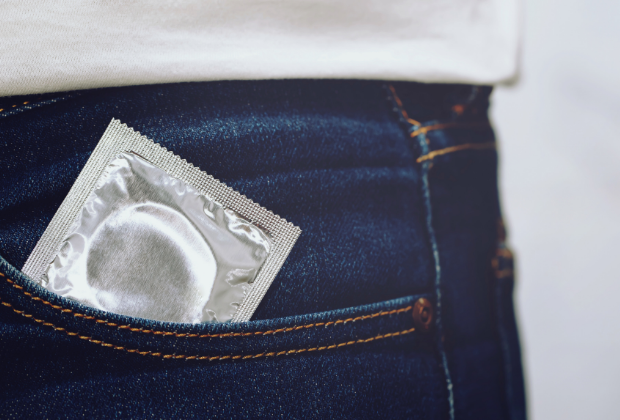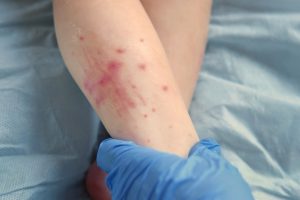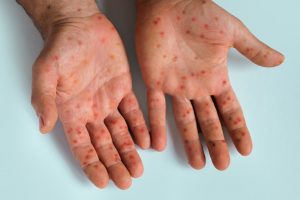1.What is an STI?
A sexually transmitted infection or STI is an infection that is spread from an infected person to another through sexual intercourse (vaginal, oral, or anal sex). STIs do not discriminate or respect boundaries; they can affect anyone who is sexually active regardless of nationality, race, ethnicity, religion, gender, sexual orientation, and economic status. In 2016, the World Health Organization estimated that there were 1 million new STI cases worldwide everyday. So STIs are very common all over the world and are a big burden to the healthcare system.
2. How does a person get an STI?
STIs are spread in the following ways:
- Having unprotected (without a condom) vaginal, oral, or anal sex with someone who has an STI. It can be difficult to tell if someone has an STI. STIs can be spread even if there are no signs or symptoms.
- During touching or kissing if a person has sores in the genital area or mouth . It is possible to get syphilis and herpes in this way.
3. What are the symptoms of an STI?
Many STIs have only mild symptoms or no symptoms at all. When symptoms are present, you can expect the following;
- Discharge from the penis in men (i-drop) or abnormal discharge from the vagina in women
- Pain on passing urine
- Pain or swelling of the testicles. Infections like gonorrhoea and chlamydia may present like this
- Sores or ulcers in the genital area (that is private parts) or around the anus
- Swellings in the groin- Infections like herpes and syphilis may present like this
- Warts in the private parts. These are caused by a virus called HPV. Certain types of HPV can cause cancer of the uterus in women.
4. What should you do if you have signs or symptoms of an STI?
It is very important to go to the clinic for treatment if you have any signs and symptoms. It is also important to notify your current or recent sexual partners so that they can also be treated at the clinic. Treatment for STIs is given free of charge at primary healthcare clinics across South Africa. Most STIs are easily treated and cured. Some viruses like herpes cause lifelong infections and may cause repeated sores in the genital area from time to time.
5. How are STIs treated?
Some STIs can easily be cured with treatment, whereas others are treated to manage the symptoms and reduce spread to sexual partners. Treatment may involve taking medicine by mouth or getting a shot. For other STIs that can’t be cured, like herpes or HIV, medicines can help reduce the symptoms, control the infection and prevent spread to sex partners.
6. What should you do if you are taking treatment but your STI is not getting better?
If the STI is not getting better despite treatment, you will be referred to a district hospital so that samples can be collected for laboratory testing, and further treatment will be based on the results of tests.
7. What happens if STIs remain untreated?
Untreated STIs may cause long-term complications such as ongoing lower abdominal pain, infertility and pregnancy complications like stillbirths and preterm delivery. If you are not treated for an STI, you can spread the infection to your sex partner. This is how STIs spread in communities.
8. Is testing for STIs done at clinics?
STI testing is not routinely done at clinics but if you present with signs and symptoms of an STI, you will be treated for the common infections causing those symptoms and signs. You will be offered to test for HIV if you do not know your HIV status, and you will be given treatment for HIV if you test HIV positive.
9. Will you always know if you are infected with an STI?
Many people infected with STIs may not have any signs or symptoms, and so they may not even be aware that they are infected. The World Health Organization is working with partners to develop quick and accurate tests to detect STIs in all persons who at risk for these infections, so that those who are infected can be treated regardless of the presence of signs or symptoms.
10. What activities can put a person at risk for both STIs and HIV?
-
- Having unprotected sex with multiple partners
- Having unprotected sex with casual partners (like a one night stand)
- Having sex while under the influence of drugs or alcohol
- These are all risky sexual behaviours.
11. How can you prevent contracting or spreading STI’s?
-
- The best way to protect against STIs is to practice safe sex and to avoid risky sexual behaviour.
- Consistent and correct condom use will protect against STI and also prevent unplanned pregnancy.
- Male circumcision done safely at a clinic or hospital can reduce the risk of HIV and STIs in men.
- A good vaccine is available to protect against HPV, the virus that causes cancer of the uterus in women. This vaccine is routinely offered to Grade 4 girls attending public schools.
12. How can pregnant women prevent spreading an infection to their unborn baby?
All pregnant women presenting to antenatal clinics are routinely tested for syphilis and HIV and are treated if they are infected, to prevent transmission of HIV or syphilis from mother to baby. It is important to have these tests done early in pregnancy (that is within the first 3 months).
13. Does a PAP smear screen for STIs?
No. A PAP smear is mainly used to look for cell changes that could be cancer or precancer caused by HPV. Women should get regular PAP smears at their clinic to detect disease caused by HPV, so that cancer of the uterus can be prevented.





